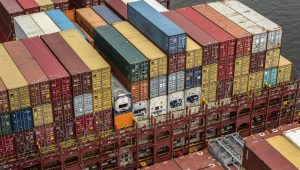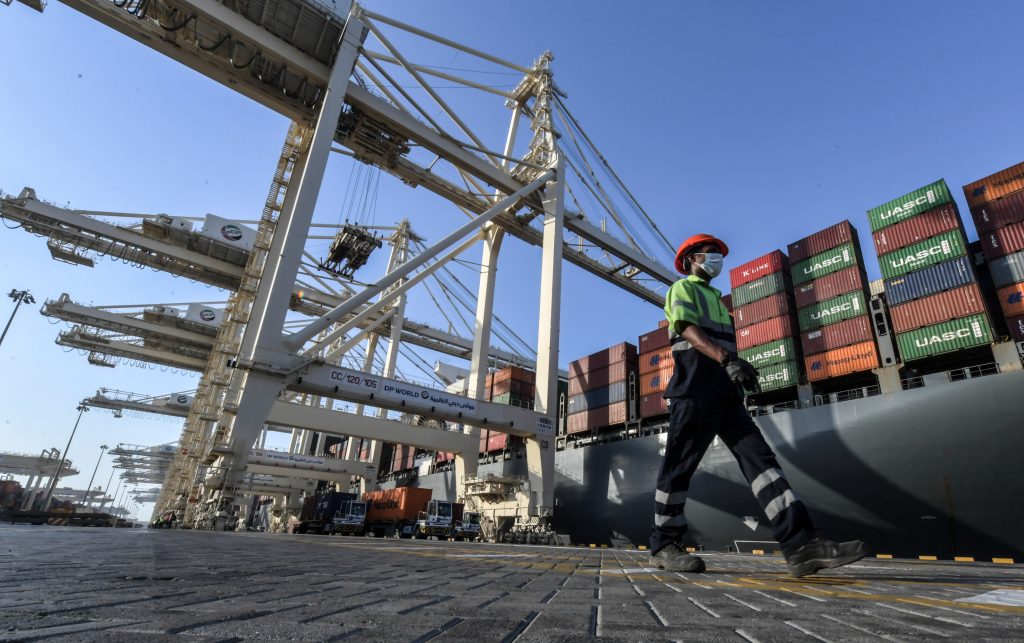São Paulo – The international trade has faced a rise in ocean freight rates, and the surge also applies to the transport of goods between Brazil and the Arab market. Although the region is not Brazil’s top trade partner, unlike China and the United States, those working with the sector say that the sea freight to the Arab world has gotten more expensive, too.
“It’s impacting everyone,” says Primo Logística executive director Augusto Ferraiol. Primo works with logistics in storage, domestic road freight, and domestic and international sea and air freight, and it is focused on foodstuffs. The operation with the Arab market involves imports from Egypt to Brazil and exports from Brazil to Egypt, United Arab Emirates, Saudi Arabia, Libya, and Jordan.
TFA Cargo Logistics commercial manager Almir Baptista sees a widespread rise in sea freight costs and difficulties in hiring cargo transport by sea. “In exports the availability of ships and equipment is getting hard, not just to the Arab countries but mainly here in the Americas,” he says. The main focus of freight forwarder TFA is not the Arab world, but the firm wants to shift its focus to the region.

The high sea shipping costs has been felt particularly since late last year, but it’s a story that started in early 2020, when the COVID-19 pandemic began. Plants shutting down in some parts of the world and difficulties to get raw material in others changed the volumes and locations of manufacturing, thus impacting scales and comes and goes of cargoes between countries. “It’s like the world trade got messed up,” Brazil’s Foreign Trade Association (AEB) president said.
The unpredictability caused by the pandemic changed the availability of ships, which caused prices to surge as some markets picked up this year. Ferraiol says that, as there was no economic perspectives in the beginning of the pandemic, many ships were given back to leasing companies, and some old ones were sold for scrap. The recent recovery in economies such as China, Europe and the U.S., though, cause the sea freight market to pick up but found it with lower supply and availability.
AEB’s Castro says that the lack of containers in the global market has also caused a smaller movement of vessels and the decrease of routes – as the ships had no containers to carry around – and contributed to the “absurd” increase in freight costs. “Many containers just sat in some ports, and with a lower availability of containers around the world, ships decreased their routes,” Castro says.
Cost in dollars
Besides the rise in the freight itself, Brazilian-based companies must take in the appreciation of the dollar relative to the real, as the sea freight is usually paid in dollars or euros. This makes Brazil less competitive compared to stronger economies that have other advantages in their rail network, terminals, charge speed, a shorter ship return time.
“In Brazil, there has been a dollar surge at approximately 50% from late 2019 through now, so you have a double price increase, as the dollar and the freight itself both rose,” Ferraiol says. He believes that the highest impact is felt by importers who sell their goods in reais in Brazil, while exporters sell in dollars. Ferraiol told that he had clients who canceled their imports because of the costs for bringing goods.
Containers

The problems in the availability and prices take place mostly in the transport of containers by sea, but they are spilling over into bulk cargo as well. In the lack of container ships, many companies are making deals with foreign clients to sell higher volumes, thus using reefer bulk carriers (as some vessels are adaptable), according to Ferraiol.
Primo’s executive director says that the increase in shipping costs was of approximately 100% from the beginning of the year through now and that this proportion is also felt by those working with the Arab market. Ferraiol believes that the prices will remain high until the end of the year, maybe they’ll increase, maybe they’ll decline, but he sees better perspectives as new containers are promise to get to the market.
The daily life
The cargo logistics industry is dominated by the daily concern to ensure that their clients’ good are shipped. “Shipowners are not making reservations for the month of June anymore; they are slowly clearing us to get in their systems and check for availability in the first or second week of July,” TFA’s Baptista said around a week ago. To get the transport, you need to get ahead. “You can’t get it for next week, it’s very hard,” Ferraiol of Primo says.
As the major bottlenecks in the sea transport of cargoes are in container ships and Brazil mainly exports commodities to the Arab countries, José Augusto de Castro believes that the freight issues are not impacting the trade with the region as much as it is impacting other markets that country supplies finished goods to. Out of total the total exports from Brazil, only 20% are finished products. As for Brazilian imports, finished goods account for 85%, the AEB’s president said.
Despite the hardships in the global logistics, the figures show that Brazil has consistently delivered its goods to the Arab market and has even stepped up sales. Year-to-date through May, exports from Brazil to the Arab countries surged 19% in in revenue and 16% in volume, the Arab Brazilian Chamber of Commerce said based on information made public the Brazilian federal government.
Translated by Guilherme Miranda




